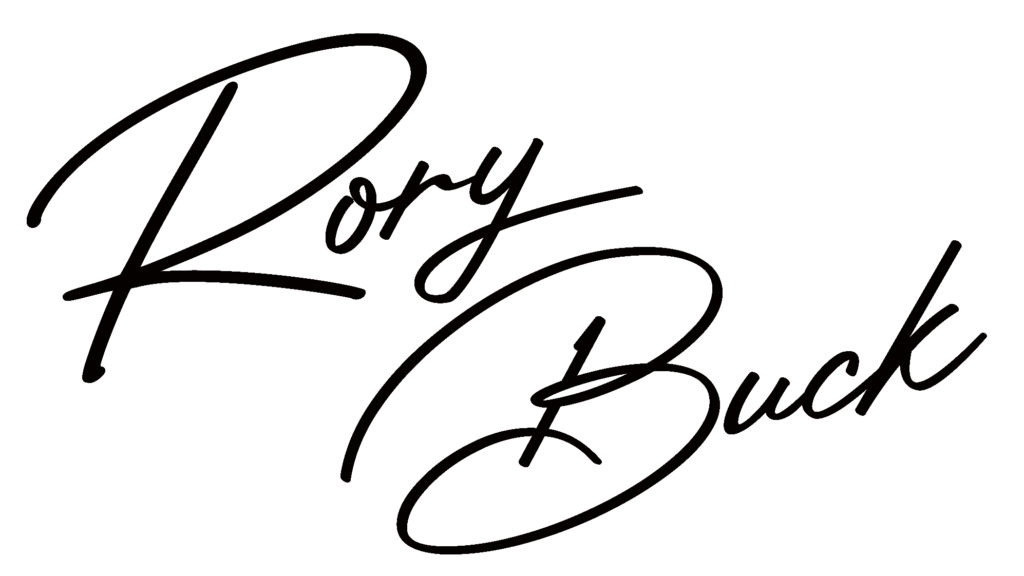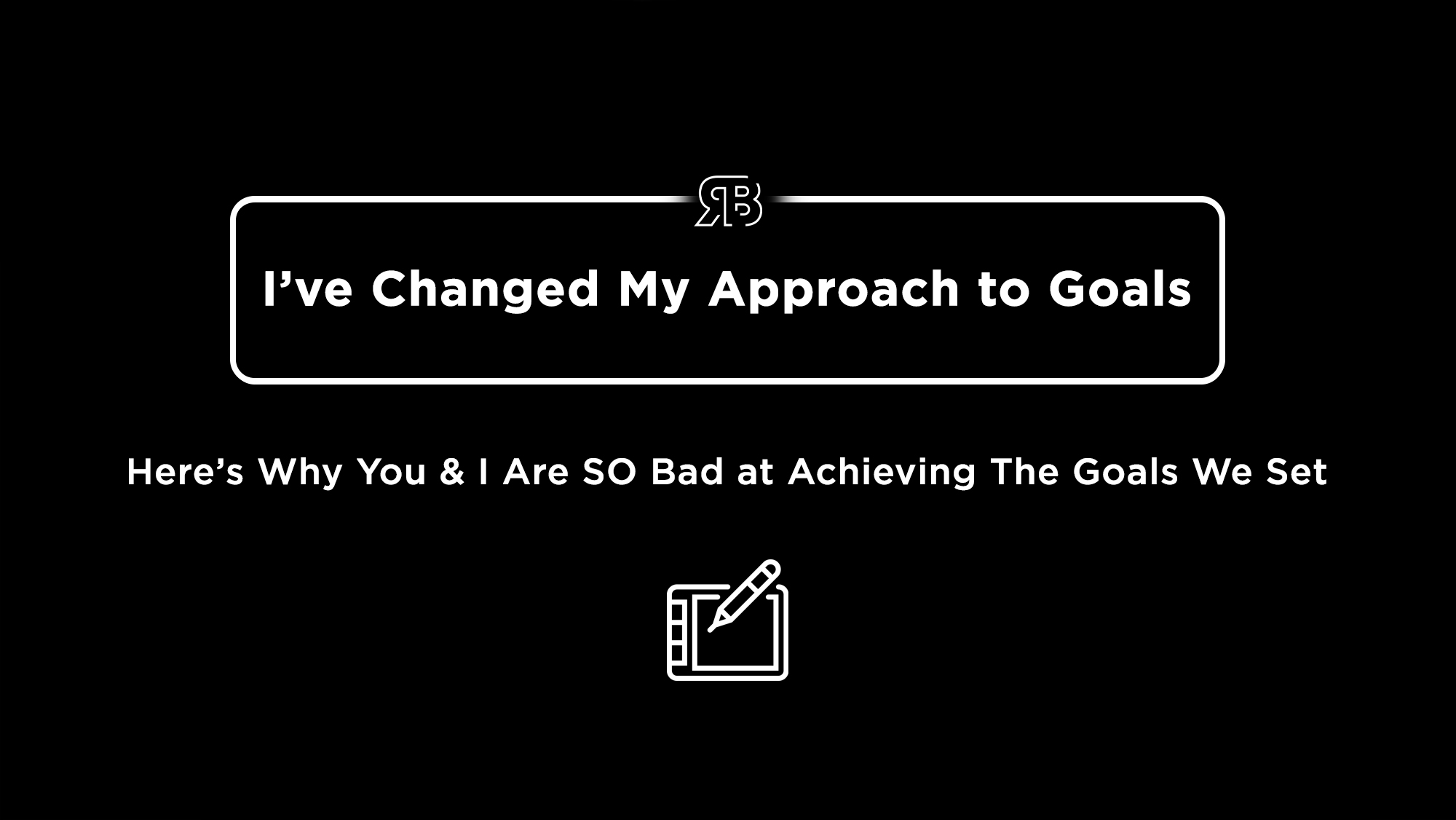The New Approach To Goals.
You don’t follow through 90% of the goals you set yourself.
Neither do I.
There’s an incredibly long list of goals I’ve come up with that I’ve never completed. There’s an incredibly long list of goals I’ve come up with that I’ve never even started!
92% of people fail on their New Year’s resolution goal. 80% fail before we even get to February!
It’s crazy just how bad you, and I are at Goal Setting.
There are some goals that you’ve been successful at.
But still, the percentage of goals you’ve been successful at is small compared to the ones you haven’t.
And what about those frustrating goals you have never crossed off your list that somehow have been completed by other people.
Other people with
less time
less talent
less money
less education
less intelligence
People, technically not as qualified as you are, and yet they’ve done something you couldn’t.
Ok, I’ll back off. I’m being an asshole.
There is a list of goals that you have been successful at.
There’s a list I’ve been successful at.
Through the years I’ve had the privilege of coaching people that had goals that looked, sounded and felt impossible. Yet, 3 months, 6 months, a year later; success.
Not all of whom would consider themselves talented, all of whom would tell you they are way too busy. Yet, they got it done.
What did they do that you or I couldn’t?
What differentiates the goals that we are able to hit from the ones we can’t?
Why do some people learn to swim faster, while others don’t?
Why can some people finish an Ironman, while others are still talking about it?
Why do some people build healthy habits, while others feel perpetually stuck in despair?
I think there may be a better way to increase your chances of succeeding at the goals you set.
But, you won’t find it in a Google Search.
Smarter Goals
Try Googling anything related to goals.
100,000 results and every self help guru on the internet will spit back something about setting SMART goals.
Specific
Measurable
Achievable
Realistic
Time Bound
The SMART Goal setting framework is good. It’s helpful. I’d recommend it.
But I have a very long list of goals that are SMART – and I’ve not hit them.
As helpful as the framework is, it’s not the reason why you or I succeed or fail to hit our goals.
Maybe it’s the Goals Themselves?
Could it be that Goals are the differentiator?
Nope.
Not according to James Clear. And I agree.
“Goal setting suffers from a serious case of survivorship bias. We concentrate on the people who end up winning—the survivors—and mistakenly assume that ambitious goals led to their success while overlooking all of the people who had the same objective but didn’t succeed.
Every Olympian wants to win a gold medal. Every candidate wants to get the job. And if successful and unsuccessful people share the same goals, then the goal cannot be what differentiates the winners from the losers.”
Jame Clear
Systems
So if it’s not the goals? Then what is it?
James Clear says it’s systems.
“Goals can provide direction and even push you forward in the short-term, but eventually a well-designed system will always win. Having a system is what matters.”
I love a good system.
I love building habits and routines and stacking them together. Creating workflows and sequences that link ideas, tasks, workouts, days, weeks, training cycles, quarters, years together.
Honestly, I’ve doubled down on systems so hard in the past, they’ve actually become the reason I’ve failed at my goals.
Focus heavily on your systems and the processes, and you’ll forget why you have the system in place. The system will own you and you’ll struggle to see clearly outside of it.
Run with that sort of rigidity and you’ll not achieve many goals for very long.
I’ve also built a system that helps Adult AG Triathletes learn to swim. The same system used with two different people will give me two very different looking outcomes; one successful, the other frizzled out.
Setting goals
Creating systems
Get started and take action
These are all important pieces of the puzzle of achieving a goal.
But I had a realization recently that changed the way I am looking at my goals completely.
Need Based Goals
I’m not after the goal, I’m after something deeper.
The goals I’m setting are a way for my brain to satisfy a human need.
Thinking about your “human needs” is not how most goals come about.
Most of us approach goal setting from a lens of “what do I want to achieve?”.
But as I reflected on the goals I’ve actually succeeded at over the years, they are the ones that have helped me meet one of my basic human needs.
I have used Maslow’s Hierarchy of needs as a framework to help me understand this idea.
A need is something necessary to live and function well.
Maslow said we have Basic, “Deficiency” Based needs:
Physiological (food and clothing)
Safety (job security)
Love and belonging (friendship)
And then we have Growth Needs;
Esteem
Self-actualization
This immediately made sense to me.
The connection between one of these needs and the goal I was chasing, the higher the probability I had at succeeding in it.
Connecting Needs & Goals
I’m privileged enough to have never needed to set a goal related to finding food or clothing. But I’m fairly confident that if I didn’t have food or clothing, my goal would be to find some, or die trying.
A few years ago, the safety and security needs got me doing some work I hated though.
I had a very short stint working in a “normal job” before I started my coaching business.
There were days where I did not want to go to work, yet I did.
Doing that job left me depressed, anxious, 15kg heavier than I’ve ever been and on antidepressants.
And yet I kept showing up at work every day.
I think a lot of people can relate to this.
Why? Do we put ourselves through hell?
Because the job provided safety. I needed to go to work so I could pay for the food and clothing and rent.
My salary supported my lifestyle, and that lifestyle met my needs up and down the chain.
Most of us are blessed to not explicitly set goals in the physiological (food and clothing) or safety layers of needs.
We just do what we need to do. Because you have to meet those needs in order to survive.
But as we start to move along or up that list of needs, we have a wider list of options for how we get our Belonging (Friendship) Esteem and Self-actualization needs taken care of.
There are 7 billion potential candidates that could help you meet your love and belonging needs. You could find friends or a companion at a bar, at the beach, at university, at work, in the pool, on the cycle track or on Facebook or Tinder.
If friendship is the need you’re trying to meet and you find a group of people that do triathlons, triathlon becomes a way you meet people.
Doing triathlons is a way you make friends and satisfy your love and belonging needs.
Now, let’s imagine that a little while after starting in triathlon, you follow the trajectory of Sprint, Olympic, 70.3 and then you sign up for an Ironman.
A SMART Goal.
You’ve got a coach, and put the system in place.
But you got into Triathlon for the purpose of connecting with people and making friends.
If the need you’re trying to meet through triathlon is one of connection, is it any wonder why you might struggle to do a 4hr trainer ride on your own or a long solo run?
If what you are doing doesn’t align with the need you’re trying to meet, you’re going to struggle with the goal.
Personally, the pursuit and success of goals like chasing my 3hr59 70.3 makes me feel important and significant.
There was a time where I wouldn’t have been able to admit that. It still feels very uncomfortable to write.
That’s because I confused “ego” with self esteem.
But, I’m not talking about stroking the ego here.
I’m talking about the positive impact that big goals like these have on self esteem.
And esteem is a basic human need. It’s a growth need, a little further along from food and clothing, but it’s a need that is critical to growing and evolving as a person.
Maslow argued that even if you have your basic physiological, safety, love and belonging needs met, you will still feel unsatisfied with life if you don’t nurture your esteem needs.
The goal of a 3hr59 70.3 helps satisfy my need to move toward self-actualization too.
Maslow said that “What one can be, one must be!”.
To him, self actualizing refers to the realization of your full potential. The self-fulfilling, seeking of personal growth and peak experiences
I have a deep curiosity about where my limits lie. I’ve talked about this before. My triathlon goal very much acts as a vehicle for me to test those limits.
Goals Through The Needs Lens
The needs based goal insight has changed the way I look at goals.
It’s not the goal, it’s the need beneath the goal that I am trying to satisfy.
The needs are innate. They don’t need to be justified.
The potential ways I can satisfy the need is personal.
The closer the alignment between the goal I choose and the need I’m trying to meet, the better my chances are of success.
You’re Going to Need Some Self Awareness
It would be amazing to ultimately have the ability to identify an innate need in myself. Scan the endless possibilities for a way to satisfy the need and set a goal to act as a vehicle to do the work.
I think it takes an enormous level of self awareness to be able to start your goal setting approach like this.
I’m not sure I have that level of self awareness yet.
I still see myself setting goals first.
But the level of awareness I have built allows me to ask some questions about those goals. And with the answers I can better understand what needs I’m trying to meet.
Along with Maslow’s framework, here’s a couple of questions I’ve used to help identify the need:
• Why do I want to achieve this ultimate goal?
• Why is this particular goal or dream important to me right now?
• In the bigger picture of my life, what role would this goal play?
• What emotion would I feel when I achieved this goal?
The more tightly I can link a goal to one of my innate needs, the more committed I am going to be to the goal.
Even if this approach only helps me increase my probability of goal success by 5%, developing awareness around my needs and linking what I’m doing to satisfy them is instrumental to living a more fulfilling and meaningful life.

